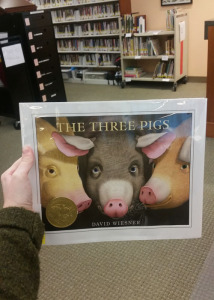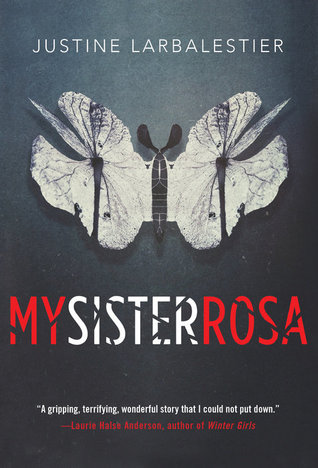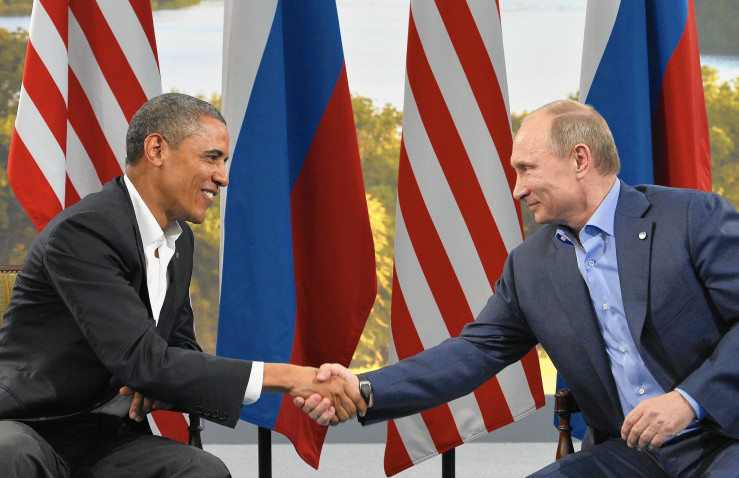 On April 13, BuzzFeed published an article by Hayes Brown headlined “How Russia Hacked Obama’s Legacy.”
On April 13, BuzzFeed published an article by Hayes Brown headlined “How Russia Hacked Obama’s Legacy.”
I feel like I have to start this post off by stating my position on whether Russia “hacked” the election. First of all, when it comes to claims made by intelligence agencies presented without proof, I’m from Missouri. And the official “declassified” version of the IC report on Russian interference in the 2016 election was short on specifics of actual who/what/when/how and long on references to open-source Russian state media like Sputnik and RT, which given that RT is still available on basic cable in much of the US, and also given that open-source influence campaigns aren’t against any existing US or international laws (and hey, we do it too), is unconvincing in terms of indicting the Russians–it’s no secret that Sputnik and RT are Russian state media and it’s no secret that the US has its own government-run media that operate overseas, including in Russia. As they say on the basketball court, don’t hate the player, hate the game.
That said, there’s a lot of motivation-based / circumstantial evidence to indicate that Russia did bet on a horse in the 2016 presidential race, and that the preferred horse was Trump. In a way, the Russian government would have been betraying its constituency by not backing Trump, given that he’d won over a lot of Russians not only with his pro-Putin messaging, but also his underdog, dark-horse campaign. Plus, it isn’t irrelevant that Hillary Clinton had openly backed protests in the 2011-2012 Russian parliamentary and presidential elections, which–while it’s easily argued that HRC played into Putin’s hands in doing so–still stuck in the craw of Putin and his supporters.
On the other hand, if you look at what Russian state media were saying at the time in terms of Trump’s candidacy, they were setting him up to be a martyr for the American Establishment System, and his popularity was framed as being evidence of both (1) an undercurrent of sympathy towards Russia in the US electorate and (2) US voters’ fatigue from interventionist foreign policy. In other words, the Russians always expected Hillary to win but wanted a narrative to explain that this would have been the victory of the System over a populist representing a significant proportion of the voters. Because, really, Hillary was a known anti-Russian quantity that Russia was prepared to deal with (preferably from a weakened position) and Trump was a wild card who said the right things, possibly cynically (Russians are cynics, the Putin crew are even bigger cynics than most Russians, and there’s no way they would take Trump at his word).
And also — and I’d like to get into this further in a future post — Trump’s “America First,” “whatever works” non-ideology lines up with Putin’s “Russia First,” “whatever works” non-ideology. Russians, who even 25 years after the end of the USSR are still wary of any ideology, see a certain pragmatic appeal in the idea of leaders getting together and brokering a deal based on self-interest and mutual tangible benefit rather than on some abstract ideas like “spreading democracy” or “liberalism” or “free markets” or any other lofty Western concepts of universal application that Russians typically regard as a disingenuous mask for advancing Western interests at Russian expense.
So let’s assume for the purposes of this post that the Russians did conduct an influence campaign aimed at electing Donald Trump in 2016, but that Trump’s actual victory was a surprise that the Russians later had to process and deal with.
I actually liked this article, for the most part. However, I am / was an Obama supporter and I don’t like the implication that Obama fucked his own legacy by not dropping everything and focusing his last months on a (most likely Quixotic) quest to convince people that a vote for Trump is a vote for Russia, or to create an international crisis in his last 2 months in office with retaliatory action towards Russia. Trump himself had praised Putin on a number of occasions, had called on the Russians to hack HRC’s State Department emails, and promised to make a deal with Putin to fight ISIS. Hillary called Trump “Putin’s puppet” in a televised debate. So the revelation that “Putin likes Trump more than he likes Hillary” would’ve been a no-brainer in the context of the election. Of course Putin liked Trump more. Did he trust Trump more? Different question.
Here are my beefs with / comments on the article:
1. The Oct. 7 statement
The reference to “the statement” is the Friday, October 7 release of an interagency statement saying that Russia was behind the DNC leaks. In the context of the article, this was a witheringly weak response to a grave provocation by the Russians. But in hindsight, given that Jeff Bezos’ WaPo has been a constant HRC supporter and put “Democracy Dies in Darkness” in the paper’s masthead after Trump’s inauguration, we know that The Washington Post‘s editorial board wanted Hillary to win. They just thought that the pussy tape was more damaging to Trump than the USG conclusion that the Russians had hacked the DNC.
Which is logical because Hillary Clinton’s campaign had already claimed back in March 2016, based on findings of the private computer security firm CrowdStrike, that the Russians were behind that hack. Controversially, US government investigators weren’t given the same access as CrowdStrike, so (apparently) their conclusion was reached based on the findings of CrowdStrike, which had already been public for months.
So I tend not to find fault with the Obama people here – the FBI wasn’t given access to the servers, their conclusions were secondhand and had already been reported months before – how strong of a statement could they put out without looking like they were using government agencies to influence partisan politics?
2. The Nuland “Fuck the EU” intercept
Here I have to add context for American readers. Victoria Nuland, noted neocon married to noted neocon Robert Kagan,* was (in Russian eyes) a villain even before the 2014 overthrow of Ukrainian president Viktor Yanukovich. Her actual title was Assistant Secretary of State for Eurasian Affairs, and she was viewed by the Russians as an advocate of “people power” revolutions in the former Soviet space. Nuland (in)famously handed out cookies to Ukrainian protesters and enthusiastically supported what, in Russian eyes (and, frankly, objectively, though one might argue it was justified), was an unconstitutional coup. What’s left out of the article is that the phone call that was intercepted was between Nuland and the US ambassador to Ukraine, Geoffrey Pyatt. Obviously there were secure lines of communication available for a conversation between a high-ranking State Department official and a US ambassador, so the release of her “fuck the EU” remark was less an example of “the Russians’ methods” and more an example of carelessness on the part of Nuland and Pyatt, or maybe ignorance or underestimation of the Russians’ surveillance capabilities.
I guess I have to make an aside here and say: the Russians are at the least our competitors, more neutrally our adversaries, or (more strongly put) our enemies in terms of influence over the governments of former Soviet states. I say this while also believing that the US and Russia can/should live in peace and come to an accommodation on how to push for their own respective interests without endangering the world. The fact is, that same competitors/adversaries/enemies dynamic exists between the US and a number of countries in the world, first and foremost China. So, long story short, if Coca-Cola finds out that Pepsi said “fuck Safeway” on a call, who gets the blame for that call being made public? Coca-Cola for releasing it, or Pepsi for having said such an inflammatory statement where it could be picked up? Who’s at fault for Trump’s “grabbing pussy” remarks: Trump or the Hillary-supporting Access Hollywood producer who released the tape?
*I wanted to call Bob Kagan a “neocon dinosaur,” but dinosaurs are typically pretty svelte (even the bulky ones), and Kagan isn’t. It would be more accurate to use a bulky, lumbering extinct mammal as a metaphor for Robert Kagan, such as a ground sloth or a glyptodon, but that would be too obscure a reference.

Above: a glyptodon.
3. What can we do without our allies?To me the part of the BuzzFeed article that leaves the most unanswered questions is this:
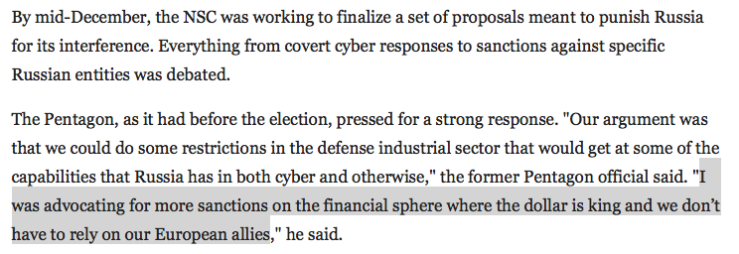
The main question (for which I have an answer, as you’ll see), is this: why not rely on our European allies? We’ve heard after the fact, from Rep. Maxine Waters and others, that Russia’s interference in the 2016 election was an “act of war.” Aren’t almost all European countries our NATO allies, bound by treaty to come to our aid in the event of an attack? Why wouldn’t Europeans want to help the US mount a “strong response” to this interference?
Here is the skinny, which everyone in the US foreign policy establishment knows, but which they don’t want to discuss publicly: the Europeans don’t want to “defeat” Russia, or even Putin. Even in the days of the USSR, they saw themselves as being caught between the belligerent (but largely benevolent) US and the belligerent (but largely malevolent) Soviet Union, and what they feared most was open conflict between the two.* But (importantly) our Western European allies made money trading with both. Really, little has changed in this respect except that in a commercial/economic sense, the ties between Russia and key European countries like the UK, Germany, Italy and France have only grown. BP owns 20% of Russian state oil champion Rosneft. Siemens, BMW and Mercedes have Russian factories and huge contracts with the Russian government, as do Eni (Italy), Renault and Total (both French). Most of Europe depends on Russian oil and gas supplies that can’t be easily replaced. The Europeans are also political cynics, to a much greater extent than Americans. Spain was a dictatorship until 1975. Portugal was too, until 1974, as was Greece. There are former East Germans who to this day reminisce about certain aspects of Communist rule. The leaders of Hungary and Bulgaria, both NATO members, openly flirt with and admire Putin’s regime. Poland’s ruling Law and Justice party is widely acknowledged as being nationalistic and authoritarian.
And Europeans, including our closest allies the Brits, look at American accusations towards Russia of “interference” in the form of influence campaigns as pure hypocricy. Before the Brexit vote, Obama was in the UK campaigning, fucking campaigning against Brexit, even threatening Britain openly with trade barriers if Brexit went through. And this is the tip of the iceberg of US interference in allies’ political affairs – everyone who’s seen The Falcon and the Snowman knows that the CIA played a part in ejecting the Australian prime minister in 1975. Europeans also remember US support of the Greek military dictatorship in the late ’60s and early ’70s, and of course the CIA black sites in Eastern Europe after 9/11, and Donald Rumsfeld’s denouncement of France and Germany as “Old Europe” in 2003 when they refused to participate in the Iraq invasion, among other things.
And this situation will inevitably come to a head if American anti-Russian hysteria continues to grow: Europeans (at least Continental Europeans) will take a less aggressive approach to Russia, there will be a schism in the Western alliance, and boom, Putin wins again.
*What they fear second-most is a chaotic leadership vaccum in Russia, and what they fear third-most is someone like Trump taking power in the US. Something to keep in mind.
4. The December 2016 sanctions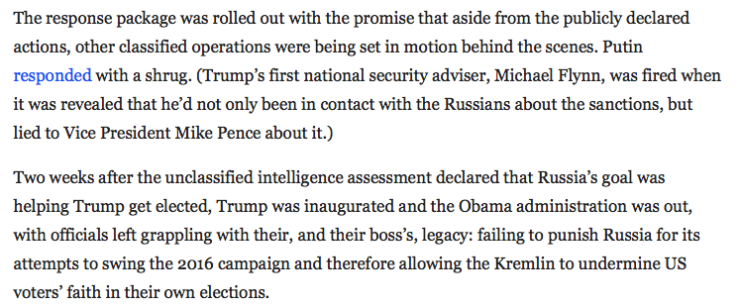
The “response package” referred to here was sanctioning some Russian intelligence agencies (later partially rolled back), expelling some Russian diplomats and seizing some Russian diplomatic properties in the US.
To me this is the crux of the article and where I’d like to let Obama off the hook: there’s little that he could have done to “punish Russia.” US-Russian trade is insignificant enough, and the Russian economy is big and diverse enough, that additional unilateral US sanctions couldn’t damage Russia economically in a serious way (but would tank the stock of US companies like McDonalds, Ford and Boeing that have huge investments in Russia, plus we have no way to get to the International Space Station without Russian help, among other potential pressure points). And, by the same token, trade between Russia and Europe, and between Russia and China, is big enough and essential enough that if forced to choose between Russian oil and gas and, for example, using the US dollar as a contract currency and/or using the US banking system for payments, these other countries would have to go with Russia and not join the US sanctions, which would tend to weaken the US dollar’s position as an international currency, among other things.
Here’s the rub: even in the ’90s, when Russia was at its weakest and our image of Russians was of poverty, gangsters, prostitutes, mail-order brides and despair, Russia never stopped being a geopolitical rival of the United States. There was a whole episode of “pipeline politics” where Central Asian oil was directed through new pipeline projects, bypassing the Soviet-era system of pipelines that went through Russia. The US actively courted former Soviet states as allies (and potential NATO members), built military facilities on their territory, expanded NATO up to Russian borders in defiance of Russian protests and bombed Russian allies like Yugoslavia. All of this pissed the Russians off even before Putin became president. And even in the ’90s, when Russia was a basketcase, there was nothing the US could do to eliminate Russian influence in world affairs. On the contrary, Russian clout has only steadily grown since a low point following the Soviet collapse. That clout has even continued to grow since anti-Russian sanctions were put in place in 2014.
All of this happened on the watch of four US presidents including Obama; there’s no reason to believe Trump has a magic bullet to stop this trend. Russia has the ability to play spoilsport in North Korea, Syria and the rest of the Middle East, Iran, Afghanistan and Central Asia, and even has its fingers deep in Latin American pies like Venezuela, Cuba, Nicaragua, Ecuador and Bolivia. And that’s not even considering that Russia is widely acknowledged as being right behind the US in offensive and defensive cyberwarfare capability, or that Russia can make half of Europe freeze to death in their homes if they cut off the gas supply in winter. Or that Russia has developed hypersonic anti-ship missiles that render aircraft carrier groups like the one just sent to North Korea obsolete. Or that Russia is literally the only country in the world that has the capability to physically destroy the United States. This isn’t me advocating giving up; it’s me saying that there’s no other choice but to make a deal, and the Russians know it and even the most strident American anti-Russian hawks (should) know it, and so everything else is just pounding on the negotiating table in advance of that deal.
And if you think all of the things mentioned in the paragraph above mean that Russia is evil, I just don’t agree with you. It’s Machiavellian, it’s from the pages of The Art of War or Ender’s Game, but achieving peace by making your opponent think twice about fucking with you is one of the reasons why people lift weights and learn self-defense. It’s “Peace Through Strength.” It’s a perfectly valid, time-tested strategy borne out by game theory and common sense. People apply it in office politics all the time.
Advertisements Share
